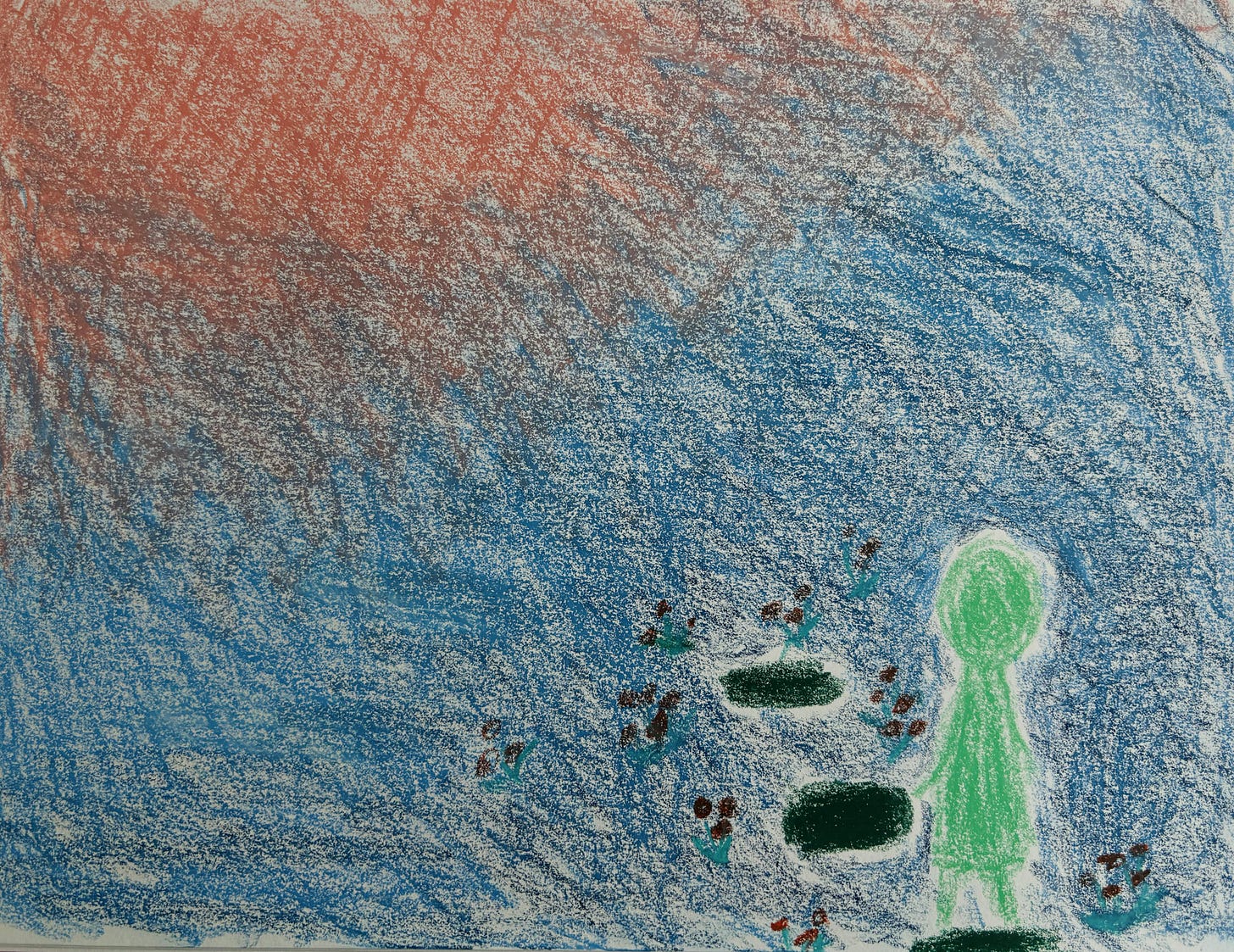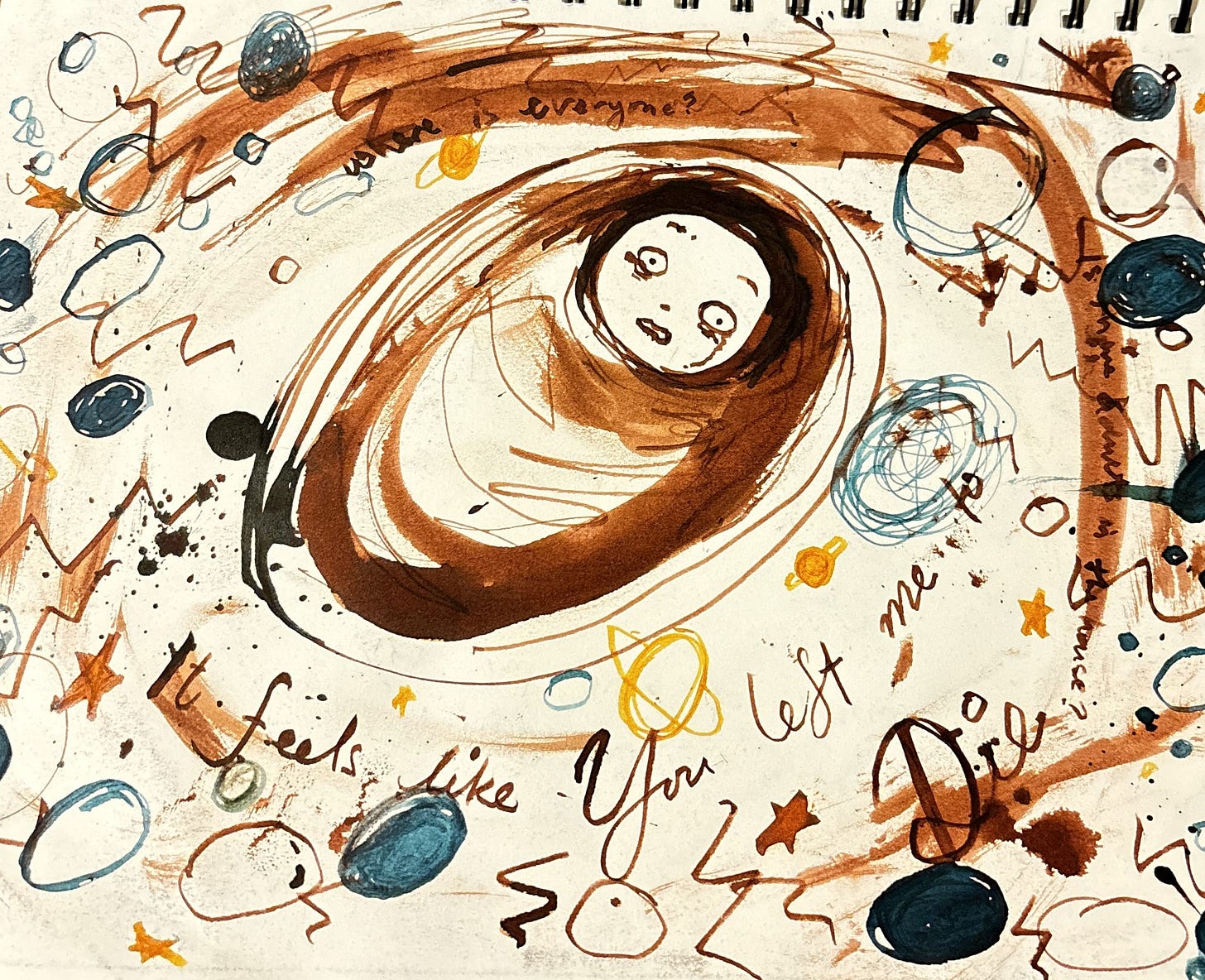A couple weeks ago I had an intense trauma response. Aside from my recent manic episode, I haven’t experienced a trauma response with such intensity for years.
A trauma response is an automatic, unconscious reaction that is reminiscent of a past traumatic event. The four main types of trauma responses are fight, flight, freeze, and fawn.
In this particular case, a perceived abandonment triggered a flight response that manifested as me wanting to get into the car and drive at 160 km/h. I was alone at home. It took every ounce of me and a call to the crisis center to stop me from executing on such instinct. I dissolved into a puddle of tears and snots on the floor, not understanding where everyone went and why I was, in my mind, being left behind.
It was very scary.
But I’m determined to do everything in my power to manage. Telling my story is an important part of the equation. If I had cancer or a stroke, I wouldn't hesitate to share with my friends and ask for help when needed. I hope people struggling with mental illness can feel the same way. I would love to see mental health issues destigmatized.
As for me now, I’m open to different modalities to see what works for me. Mindfulness, meditation, and journaling are now a regular part of my day. I have a trusted therapist for top down talk therapy. I practice weekly art therapy. I’m also starting EMDR (Eye Movement Desensitization and Reprocessing) and Somatic Experiencing this week. The latter 3 are bottom up psychotherapy.
What I’m saying is, help is out there. This is not (just) putting on a brave face. This is about putting our life back together and living it to the fullest. If you’re struggling, please seek professional help. Not gonna lie, one-on-one therapy sessions are expensive. However, there are affordable options available. For example, the art therapy and writing therapy I participate in are offered by BC Brain Wellness for free. YVR Recovery is another valuable resource that doesn’t cost anything.
Breathing in. Breathing out. We got this.



